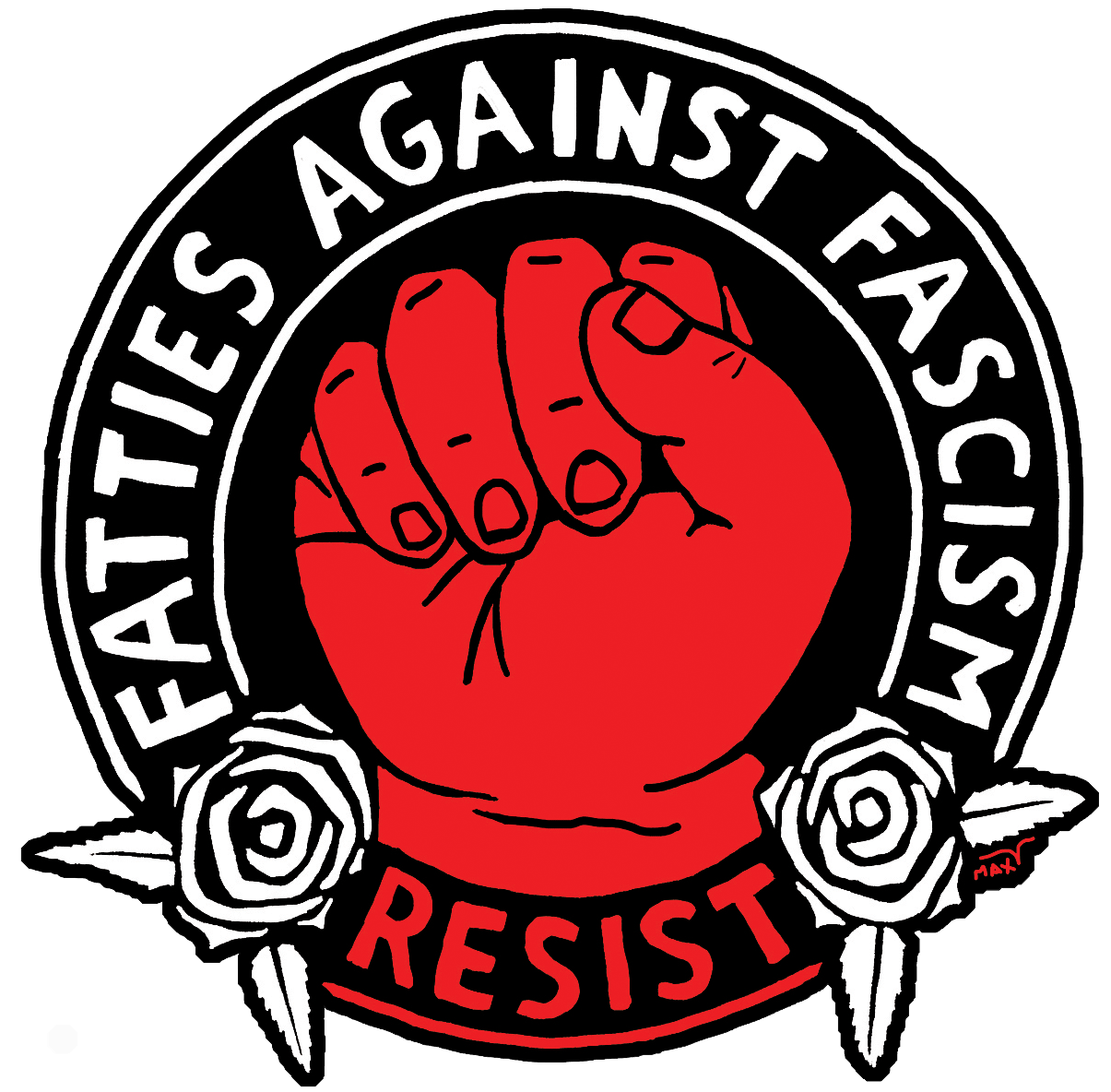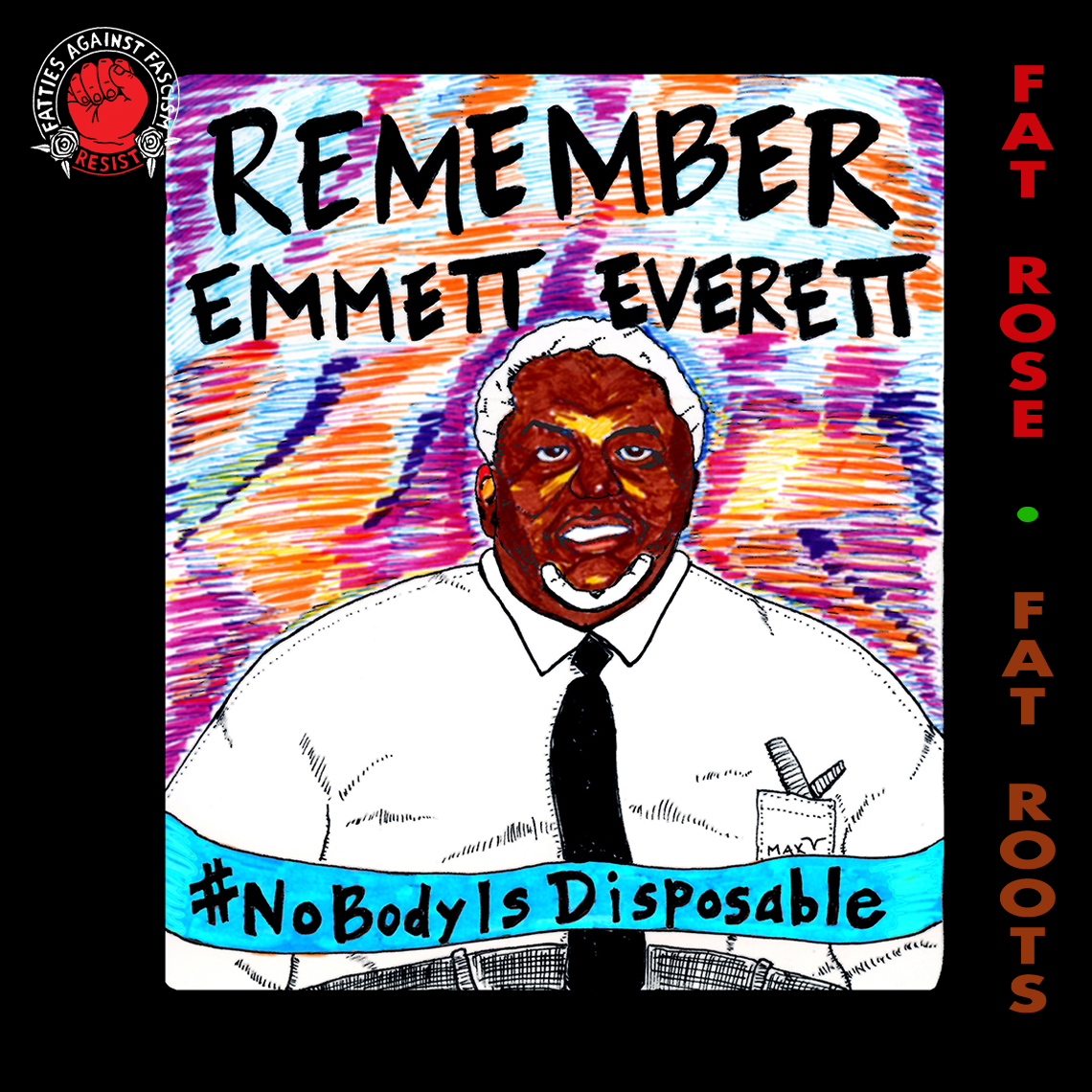As climate catastrophe intensifies, and we work to keep our people alive, the ways that fat hatred, ableism and racism kill become clearer. It’s so important for us to know these stories and learn from them. Rest in Power, love and laughter, Emmett Everett, Jannie Burgess, and all those who die too soon from hatred and ignorance coupled with power.
Emmett E. Everett (Pablo) was a fat, Black man born in Honduras who grew up in New Orleans, Louisiana. He had a great sense of humor, and was part of a large family: siblings, wife, children, nieces & nephews, grandchildren. At age 50, a spinal cord stroke caused paralysis in his legs. Eleven years later, at age 61, he was in good health, except for an issue with his bowels. He was scheduled for surgery.
It was 2005. When Hurricane Katrina struck, Emmett Everett was in the hospital awaiting surgery. He was alert and in good spirits, according to his wife, Carrie and the hospital’s nursing staff.
The hospital lost power and communication with the outside world. As medical personnel worked to evacuate patients via boat and helicopter, they categorized the patients that remained into three groups. Those who could walk would get rescued first. Those who were sickest or fat, would either go last or be killed by lethal injection with the drugs morphine and versed.
Emmett Everett, at 380 lbs, was deemed by doctors as too fat to be rescued. So was Jannie Burgess, at 350 lbs, and age 79. Rodney Scott, an ICU patient weighing over 300 lbs, was slated to be evacuated last, so he wouldn’t hold up the line. Of the three, only Rodney Scott made it out alive. He was in fact the last person evacuated. By that time, 21 patients had been killed with the lethal injections. Most died quickly, according to one person participating in the killings. Emmett Everett did not, and only died after they smothered his face with a towel.
Emmett Everett seems to be most known of the patients who were killed. He had been alert, awake, excited to be rescued, and anxious about being left behind as the days went by and he could see the helicopter rescues happening outside his window. Rescue workers, when learning about Emmett Everett, said they’d not been told he existed, and that they were sure if they’d known about his presence, they’d have found a way to evacuate him.
The doctor accused of Emmett Everett’s death, Dr. Pou, was not indicted. Much of the testimony and evidence was withheld from the grand jury, and despite several medical investigations that found the deadly cocktail of morphine and versed in his body, along with the bodies of many others, the coroner declared the causes of death as “undetermined.” Pou’s lawyer says Everett “almost certainly died of an enlarged heart,” not an overdose of medication. In the four years following Katrina, Pou helped write and pass three laws in Louisiana offering immunity to health care workers from most civil lawsuits for their efforts in future mass casualty situations.
The Everetts’ home in the Lower Ninth Ward was destroyed. Carrie Everett spent weeks trying to find Emmett. She learned of his death on Sept. 16, after he’d been dead for 15 days. His death certificate says: “Cause of Death: Katrina.” Carrie R. Everett passed away on Monday, April 8, 2019 at the age of 69.
Text and image by Max Airborne for Fat Rose.
More about this story can be found at ProPublica (The Deadly Choices at Memorial by Sheri Fink), and in the book, Five Days at Memorial by Sheri Fink.

